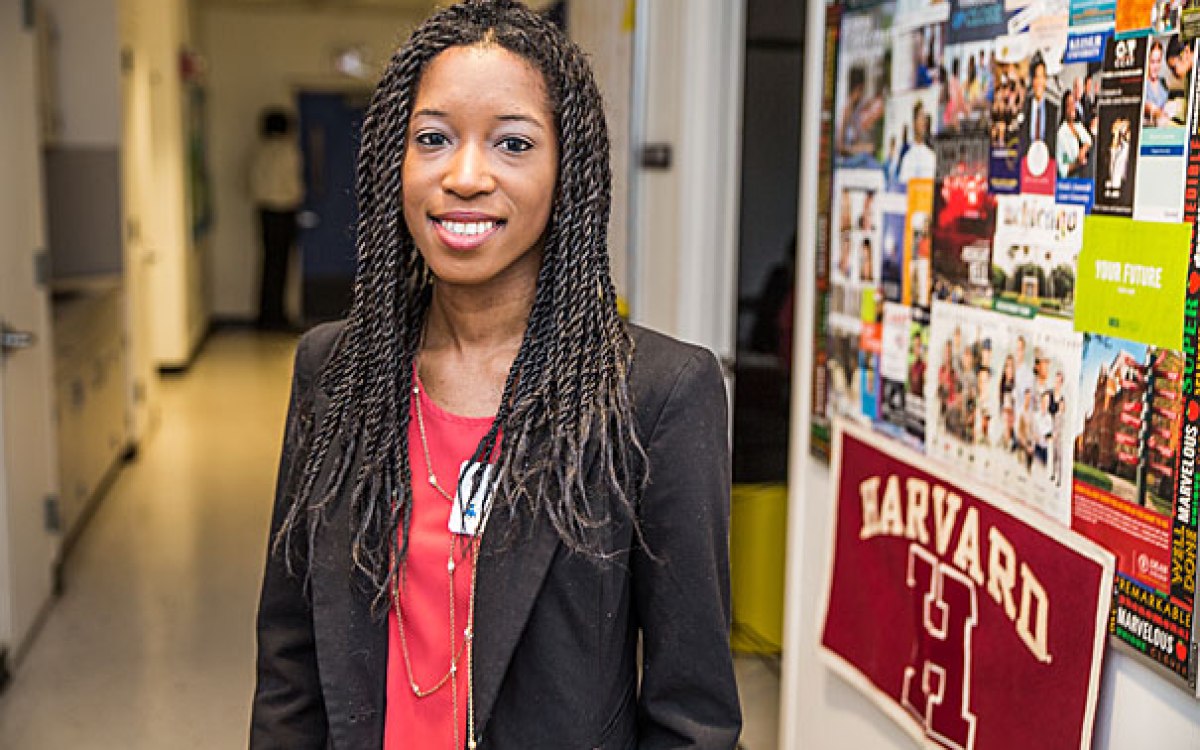From the ‘Fruit Belt’ to the lab
Student bound for med school explains how financial aid made Harvard, and more, possible
Part of a series on the impact of Harvard financial aid on students.
Sahar Ashrafzadeh grew up in Stevensville, a town of about 1,000 in Michigan. But there’s more to her story.
More like this
Pursuing education, her Iran-born father moved with his wife to Calgary, Canada, where Ashrafzadeh was born. After her father completed his degree, a job offer brought the family to Stevensville, where Ashrafzadeh and her older sister, Sepideh, grew up.
“I lived in a rural area called the ‘Fruit Belt’ along Lake Michigan,” she said. “There were beaches, apple orchards, vineyards, and farms, so it was a lovely place to grow up.”
Ashrafzadeh is the first person from Lakeshore High School to attend Harvard College, where she is pursuing a concentration in molecular and cellular biology. She will graduate this spring and plans to attend medical school.
“Harvard’s financial aid made it possible for me,” she said. “Even compared to my state school, Harvard made it so the cost of College was not even relevant in my decision.”
Harvard College Dean for Admissions and Financial Aid William R. Fitzsimmons explains, “Most people don’t realize that a Harvard education costs the same or less than a state school for 90 percent of American families, based on their incomes and Harvard’s financial aid. Harvard really is possible for students from all socioeconomic backgrounds.”
More than half of Harvard students receive financial aid, and for 70 percent of aided students, their grant covers the cost of tuition. For the 2018 academic year, the cost to attend the College will be $65,609, including $44,991 for tuition, approximately a 4.1 percent increase from 2017, maintaining Harvard’s standing as one of the least expensive schools in the Ivy League.
The majority of undergraduates receiving financial aid pay just 10 percent of annual family income, with the average net cost to parents being about $12,000 a year. One in five Harvard undergraduates comes from a family earning less than $65,000 a year, and their families pay nothing toward the cost of their education. These students now also receive a $2,000 start-up grant that helps with move-in costs and other expenses incurred in making the transition to College.
“In this first year of the program, we have awarded nearly $650,000 in start-up grants to support our students,” said Sally C. Donahue, Griffin Director of Financial Aid for Harvard College. “Students have used the additional funding in a number of different ways, including purchasing books, setting up their dorm rooms, and buying computers. We have received very positive feedback that these dollars have really helped students cover unexpected costs of starting College and have allowed them to fully engage with their new classmates.”
Harvard’s commitment to ensuring that all students can take full advantage of their College experience extends farther. Harvard provides more than $6 million in additional funding annually to aided students, supporting everything from new winter coats to music lessons to studying abroad to public service internships to research experiences in a lab.
Ashrafzadeh has benefited from this additional support in various ways, most recently as a Program for Research in Science and Engineering (PRISE) Fellow last summer. She used the funding to work on her just-submitted senior honors thesis, which explores the intersection of computational and wet lab research to study the health effects of DNA mutations in a gene, LRRK2, as a novel therapeutic treatment for Parkinson’s disease.
“As long as I can remember, I have been interested in the sciences,” she said. “In particular, I have been interested in biology, not only because I find human biology and physiology fascinating but also because I feel that medicine is the field through which I personally can contribute the most to my community in my future career.”
PRISE is a 10-week summer program that seeks to foster a vibrant intellectual and creative community among Harvard undergraduate researchers in the physical/natural, engineering, life, and applied sciences. PRISE Fellows work on projects with Harvard-affiliated researchers and live together in one of the College’s Houses, where they participate in academic and social programming each evening. The selection of PRISE Fellows is need-blind, with all fellows receiving a stipend and partial board. Aided students also receive an additional award to satisfy their summer savings requirement.
“It is difficult to say that anyone can take full advantage of the Harvard experience. The opportunities to learn and grow are truly limitless,” said Ashrafzadeh. “I can say that all of the opportunities I was able to take advantage of have been extremely valuable to me, and that Harvard’s resources and financial support have made it possible for me to perform independent research, travel abroad, present at conferences, and afford tuition. For this, I am incredibly grateful.”





